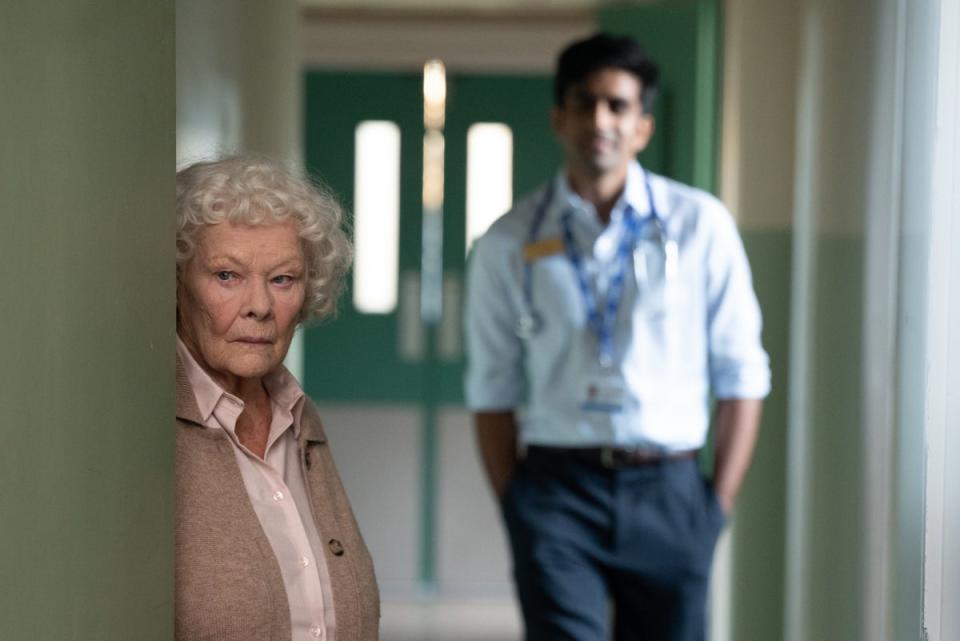Allelujah film review: a loving but unrealistic and ill-judged portrait of an NHS in crisis

There is no British institution more revered and respected than the NHS. Richard Eyre’s Allelujah, based on the 2018 Allan Bennett play of the same name, is a love letter to the service that takes us “from the cradle to the grave” - but somehow ends up exposing its worst flaws through a spectacularly awful plot twist.
When the geriatric ward of the Bethlehem hospital in Wakefield is threatened with closure due to Tory cuts, its staff spring into action to fight for its survival. Colin Colman (Russell Tovey), a Department of Health consultant, is sent from London to inspect the ward before it is shut down, but his estranged father Joe is later moved there as an inpatient. Time spent around the staff caring for his father helps to thaw his icy heart as the pair attempt to repair their broken relationship. At the same time, a local camera crew arrives to document life on the wards in the hope that it will galvanise public opinion and stop the closure.
A cast packed with British acting talent largely delivers, with Jennifer Saunders impressive in the role of Sister Gilpin, the geriatric ward’s cynical, world-weary chief nurse. Bally Gill is also endearing as Dr Valentine, a young doctor determined to preserve the hospital’s philosophy of “patients over profits”. Dame Judi Dench, however, is bizarrely underused in the role of Mary Moss, a patient tasked with filming the work of hospital staff on an iPad.
Allelujah fizzes with Benettian gags and contains scenes that are genuinely moving and funny, but it is not a realistic portrayal of the NHS as it is. Though there are allusions to bed shortages, most exhausted doctors and nurses would probably not recognise the sepia-tinged picture of the health service on show here. This would be fine if the film’s intention was to be a harmless comedy-drama, not a political polemic.

The film is rumbling along in a charmingly tedious way until a huge, pointless twist involving Gilpin flips the plot on its head. It is poorly executed, ill-judged and ironically plays into a narrative propagated by the NHS’ most vociferous critics.
The twist ruins what should be a powerful final scene, as the film fast forwards to an emergency care ward during the Covid-19 pandemic. Dr Valentine delivers an impassioned address to camera, pleading with the Government and the public not to forget the sacrifices made by NHS staff battling the virus. It feels bizarre and almost crass after what has unfolded in the previous 15 minutes.
Laying the politics on so thick at such a late stage is also unnecessary. Marc Munden’s 2021 drama Help is such an affecting portrayal of the inadequacy of Britain’s social care system and how it fails our country’s elderly because it lets the strength of its acting and writing do the talking. Monologues do not have to tell the viewer something that is implicit in the plot.
I desperately wanted Allelujah to work. Its fundamental premise – that health workers are underpaid and undervalued – is correct. With the NHS currently in the midst of its biggest ever wave of industrial action involving nurses, paramedics and junior doctors, this could have been a timely film. Unfortunately, it is an incoherent jumble of ideas and feelings that fails to land the message it intends.
Allelujah is released in cinemas from March 17

 Yahoo Lifestyle
Yahoo Lifestyle 